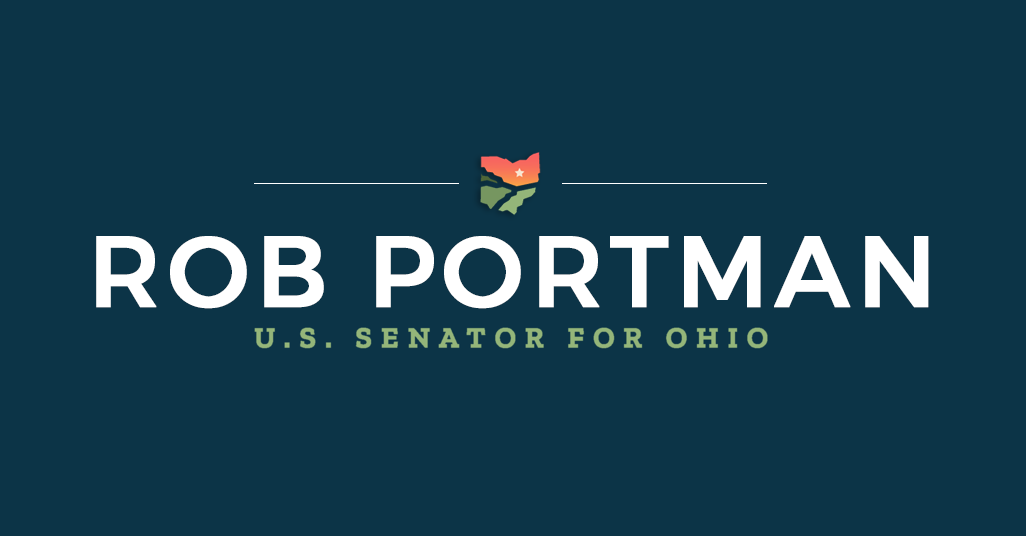Source: United States Senator for Ohio Rob Portman
June 24, 2021 | Portman Difference
In an interview this morning on CNBC’s Squawk Box, Senator Portman provided an update on the ongoing bipartisan infrastructure negotiations ahead of his meeting with President Biden later today. Portman stressed the importance of focusing on core infrastructure upgrades without increasing individual or corporate taxes, which would hurt hard-working American families and negatively impact American businesses.
The transcript of the interview can be found below and you can watch the interview here.
PORTMAN ON WHERE INFRASTRUCTURE NEGOTIATIONS STAND:
“We’ll see what the president says. But I will tell you, we’ve worked very closely with White House negotiators all through this process, as well as working with Josh and his team over in the House. So we’ve tried to keep this as broad as possible. We now will be going out to our colleagues on both sides of the aisle talking about the specifics.
“You and I have talked about this before, but this is about long-term capital investments to help the economy, make it more efficient, make it more productive. It’s going to have a positive effect on the economy. It doesn’t affect inflation because, in effect, it’s adding to the supply side rather than the demand side, which is the issue with short-term stimulus spending. So I think this is a good thing for the economy right now. It’s consistent with what every president over the last four or five have been asking for but haven’t been able to get done.
“President Trump, as you recall, had an ambitious $2 trillion infrastructure package. This is about $1 trillion over the same period of time, $559 billion over the five-year period of new infrastructure. So I’m hopeful we can get a positive response from the White House today. And most importantly, it’s good for America.”
PORTMAN DETAILS DIFFERENCES BETWEEN THE BIDEN PROPOSAL AND THE BIPARTISAN INFRASTRUCTURE PROPOSAL:
“Well, we’ll see. I mean, we started off, as you know, with a proposal from President Biden, which was $2.65 trillion, again, as compared to our package, which is about $1 trillion. It also included a lot of non-infrastructure-related items. In fact, most of it had nothing to do with the kind of hard infrastructure that Josh was just talking about. It also had huge tax increases. Over $2 trillion of income tax increases on the corporate side, primarily.
“None of that’s in this package. This is core infrastructure and no new income taxes, corporate or individual. And that was our goal, as Republicans and Democrats, to try to pull together and do something in a bipartisan way. So my hope is we can keep that group together and move forward on that basis. In terms of reconciliation, I’ll let Josh talk to that, but Democrats were going to move forward with a broad reconciliation bill with a lot of tax increases, in fact, the most in the history of our country regardless. My sense is that infrastructure, if we can get this done separately, being pulled out of it, makes it a less attractive package for a lot of the more moderate Democrats.”
PORTMAN EXPLAINS HIS OPPOSITION TO TAX INCREASES:
“So my hope is that for Democrats, they focus on what’s good for the economy. And raising taxes right now, particularly, making our country less competitive at a time when we finally have a tax rate for, not so much corporations, is what I’m concerned about, but the workers, because most of the benefit of the tax cuts went to the workers, based on the nonpartisan Congressional Budget Office and other economic analysis – we’ve talked about that on this show before. When you raise those taxes, particularly raising them five times higher than we cut them in 2017, it’s going to really hurt our workers in terms of wages, benefits, and competitiveness.”
…
“Well, the issue you’re talking about, Joe, is probably one where Republicans and Democrats could talk about, because it’s about people not having any income taxes, but rather relying on either borrowing against their assets or in some cases capital gains taxes. But Joe, here’s the focus that I hope we will have going forward, which is, let’s not put our small businesses and our farms and ranches in a position where they literally can’t be passed on from generation to generation by not allowing step-up in basis and by increasing the estate tax so high, because that’s what’s going on here in combination with much higher capital gains taxes. It would be harmful to the very backbone of our economy.
“So that’s what I’m concerned about from what I hear about what’s in the Sanders package. We’ll see. But you don’t want to go there, because again, Josh said it well, we’re coming out of a pandemic. We finally see a nice economic recovery. We’ve got to deal with the inflation issue. We’ve got to focus on the supply side, which is what, by the way, more infrastructure is all about. And we’ve got to focus on ensuring that we’re not doing the wrong thing now so that we get off track. Before the pandemic, remember, we had rising wages. We had the lowest poverty rate in the history of the country. We had low unemployment, historically low for Blacks and Hispanics. So we had a lot of good stuff going on. We need to get back to that.”
